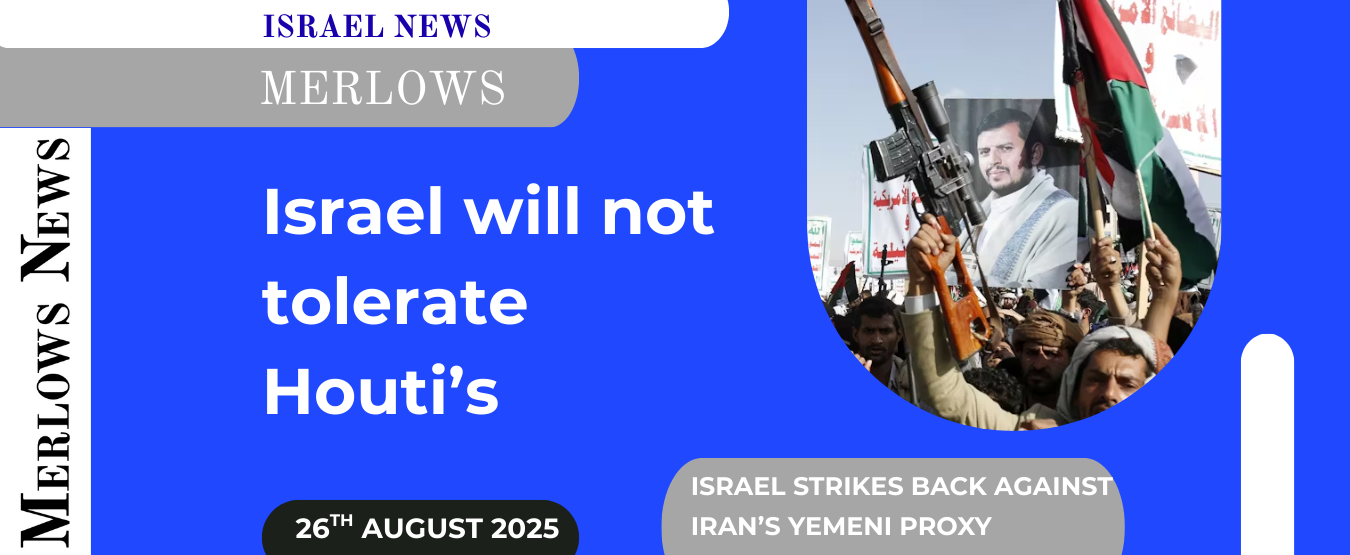While the world turns away, Israel is the one nation willing to strike back against Iran’s Yemeni proxy.
In a Nutshell
On 26 August 2025, Israel launched airstrikes on the Yemeni capital of Sanaa after waves of drone and missile attacks from the Houthis targeted Israeli skies. The Houthis, Iran’s well-armed proxy, have harassed shipping in the Red Sea, attacked Saudi oil facilities, and now openly challenge Israel. Yet outside of Jerusalem, the outrage is curiously muted. The United States talks of “monitoring.” The United Nations urges “restraint.” Arab governments remain cautious.
The strikes were a message: Israel will not tolerate attacks on its sovereignty, no matter how distant their origin.
Sources: AP News, 26 Aug 2025, CFR, Mar 2025
The Main Course
The Houthis are not a ragtag militia. They are Iran’s outpost on the Arabian Peninsula, a well-supplied force equipped with missiles, drones, and increasingly sophisticated tactics. Their attacks on international shipping through the Bab el-Mandeb Strait have disrupted global trade. Their strikes on Saudi energy infrastructure have rattled oil markets. And now, with Iran’s blessing, they aim their arsenal at Israel.
For Israel, the decision to strike Houthi targets in Sanaa was both defensive and symbolic. Defensive, because every drone launched towards Tel Aviv is a potential catastrophe. Symbolic, because it demonstrates a principle Israel has never abandoned: when others hesitate, Israel acts.
Western powers, so eager to speak of “international law,” are oddly quiet when the Houthis rain missiles on civilians. The United Nations, which can convene emergency sessions on Gaza at a moment’s notice, can only summon the language of “concern” when Iranian proxies fire at Israeli cities. It is the old pattern: Israel condemned for defending itself, its enemies excused for attacking.
The Media Recommends
The Associated Press described Israel’s strikes as “a dramatic escalation.”
Source: APThe Council on Foreign Relations reminded readers that the Houthis “could not sustain their operations without Iranian weapons, funding, and expertise.”
Source: CFR
And yet, in most mainstream coverage, the story was inverted: Israel’s strikes were the escalation, not the missile attacks that provoked them.
The Merlow View
History has seen this pattern before. In the 1960s, Nasser armed Palestinian fedayeen while pretending Egypt had no responsibility. In Lebanon, Hezbollah grew fat on Iranian cash while the UN sat on its hands. Today, the Houthis are Iran’s spear, and the world shrugs.
The fantasy is that diplomacy will tame them—that Iran can be persuaded to rein in its proxy with words and incentives. The reality is that Iran uses the Houthis precisely because they are expendable. They bleed for Tehran’s ambition, while the world debates resolutions in Geneva.
Israel’s strikes were not escalation. They were clarity: a reminder that the Jewish state will not rely on others to protect its skies. If the Houthis are Iran’s outpost, they must be treated as Iran’s responsibility. Until the world admits this, Israel will continue to stand alone.
The Houthis are not a distant problem. They are a symptom of Iran’s strategy and the world’s denial. The invitation is to see the pattern: where others equivocate, Israel confronts. And to ask the harder question—if not Israel, who will stand up at all?







Share this: